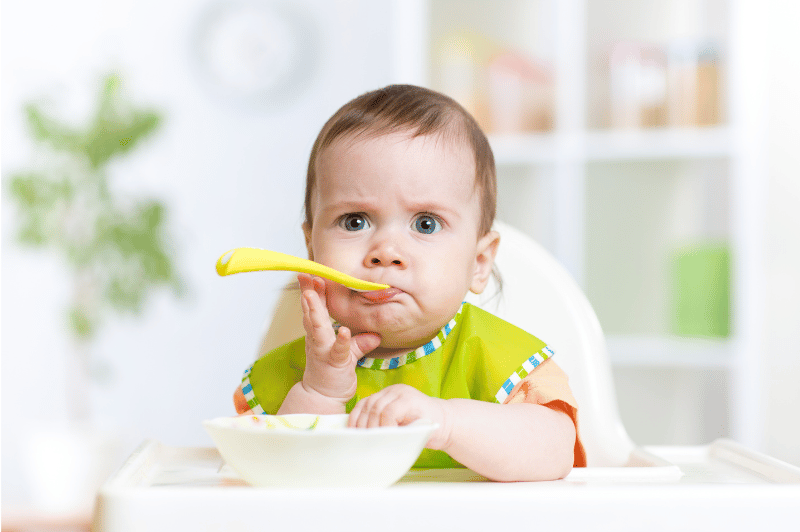Introducing solid foods is a significant milestone in a baby’s development, marking the transition from breast milk or formula to solid foods. However, not all foods are safe or suitable for babies in their first year of life. This article highlights foods to avoid and provides guidelines for ensuring safe and healthy feeding.
Honey
Honey should be avoided for babies under one year of age due to the risk of infant botulism, a serious illness caused by toxins produced by bacteria present in honey. Even a small amount of honey can be dangerous, and this includes honey found in processed foods and bakery products.
Cow’s Milk
Cow’s milk does not provide adequate nutrition for babies under one year of age and can be difficult for their still-developing digestive systems. Breast milk or infant formula should be the primary source of nutrition during the first year.
Foods with a High Choking Risk
Small, hard, or sticky foods can pose a significant choking risk for babies. This includes:
• Whole grapes
• Hot dogs cut into rounds
• Nuts and seeds
• Popcorn
• Large pieces of meat or cheese
These foods should be avoided or prepared in a way that reduces the choking risk.
Foods High in Sugar and Salt
Processed foods and snacks can be high in added sugars and salt, which are not healthy for babies. Excessive sugar can contribute to long-term health problems like obesity and cavities, while too much salt can harm a baby’s developing kidneys.
Potential Allergenic Foods
While introducing potential allergenic foods is no longer discouraged, it’s important to do so carefully and watch for any allergic reactions. Foods like eggs, peanuts, and fish can cause allergic reactions, and any new food should be introduced individually, with a few days in between.
Raw or Undercooked Foods
Raw or undercooked foods can contain harmful bacteria that may cause food poisoning. This includes:
• Raw or undercooked eggs
• Undercooked meats
• Raw seafood
Ensure all foods offered to the baby are well-cooked and safely prepared.
Fruit Juices
Fruit juices can be high in sugars and don’t offer the same nutritional benefits as whole fruits. The American Academy of Pediatrics recommends limiting fruit juice consumption and opting for whole fruits instead.
Unmodified Foods
Foods that are not modified to be safe for babies can pose a choking risk or be difficult for them to eat. This includes uncut raw fruits and vegetables not cut into small, suitable pieces, and unground meats.
Conclusion
Introducing solid foods is an exciting phase in a baby’s development, but it’s important to proceed with caution and be aware of foods that can pose health and safety risks. Avoiding specific foods and preparing foods appropriately can help ensure a safe and nutritious feeding experience.
Disclaimer
The information presented in this article is purely informative and intended to provide general guidelines on foods to avoid in a baby’s first year of life. This article is not intended to replace professional guidance, diagnosis, or treatment. If you have concerns about your child’s nutrition, it is essential to seek guidance from a health professional or a child nutrition specialist. No information in this article can replace the knowledge and judgment of a health professional.
